'No Grass, No Growth, No Eid': Stuck in Lowlands Since Pahalgam Attack, Bakarwal Herders Face a Crisis
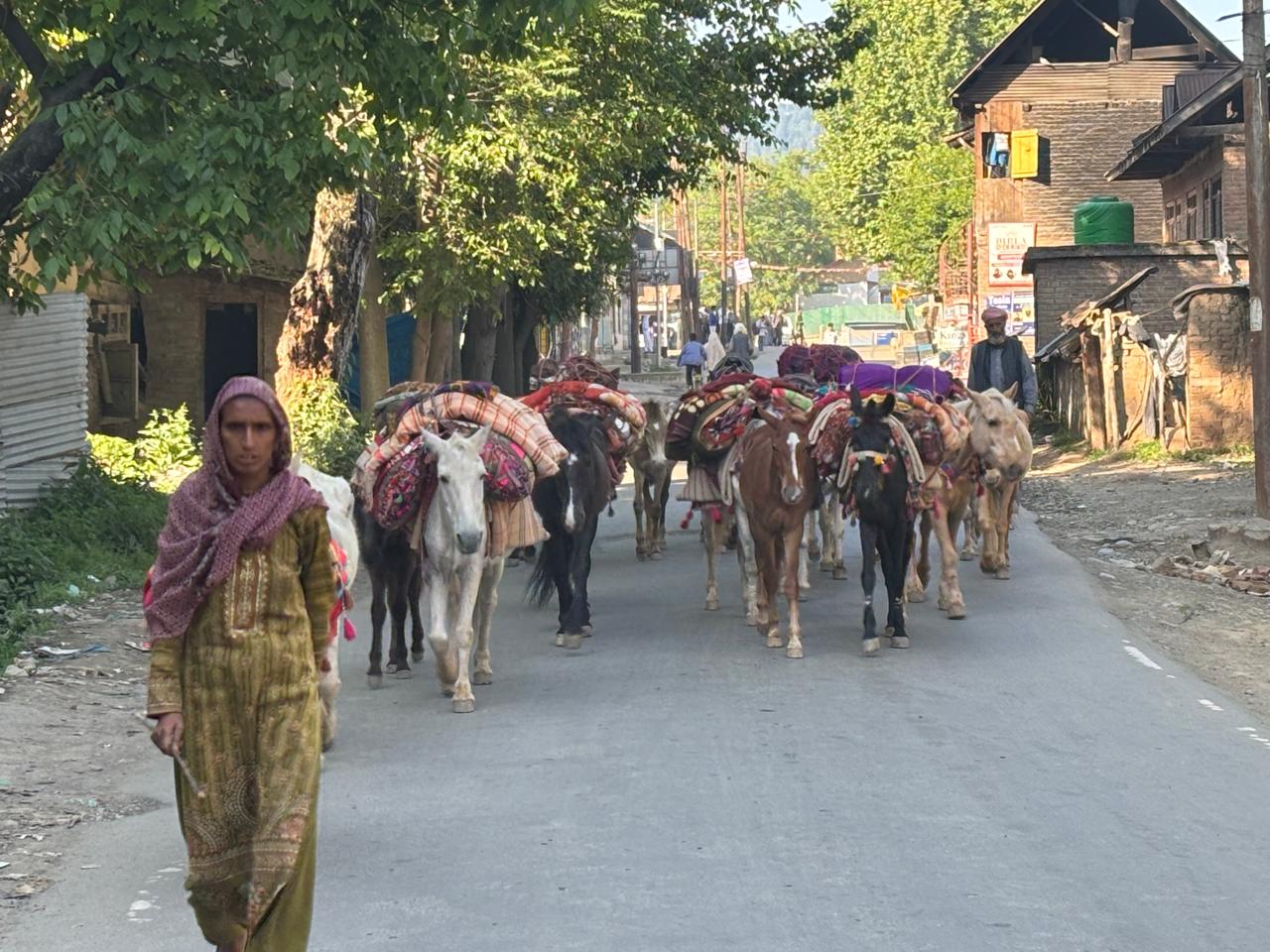
Anantnag (Jammu and Kashmir): Altaf Ahmed Khan and his family begin their seasonal journey every year in April into the mountains of South Kashmir’s Anantnag district, returning from Jammu’s Akhnoor after spending the winter there.
Altaf belongs to the Bakarwal community, a nomadic pastoralist group in Jammu and Kashmir that is part of the larger Gujjar ethnic population spread across northern India, Pakistan and Afghanistan.
According to the 2011 Census, Gujjars and Bakarwals together number around 1.5 million across Jammu, Kashmir and Ladakh - constituting roughly 11.9% of the region’s total population.
Practising Islam, the Bakarwals were officially designated as a Scheduled Tribe in 1991 (under The Constitution Scheduled Tribes Order Amendment Act, 1991). They traditionally spend the winter months in the warmer areas of Jammu or Punjab and return to the alpine meadows of Kashmir between April and October.
Recognised in the Census for the first time in 2001, the Bakarwals maintain a nomadic lifestyle, moving seasonally in search of fresh pastures for their livestock. This cyclical migration is crucial not just to their livelihood but also to the health and well-being of the animals they depend on.
[caption id="attachment_452010" align="aligncenter" width="1280"]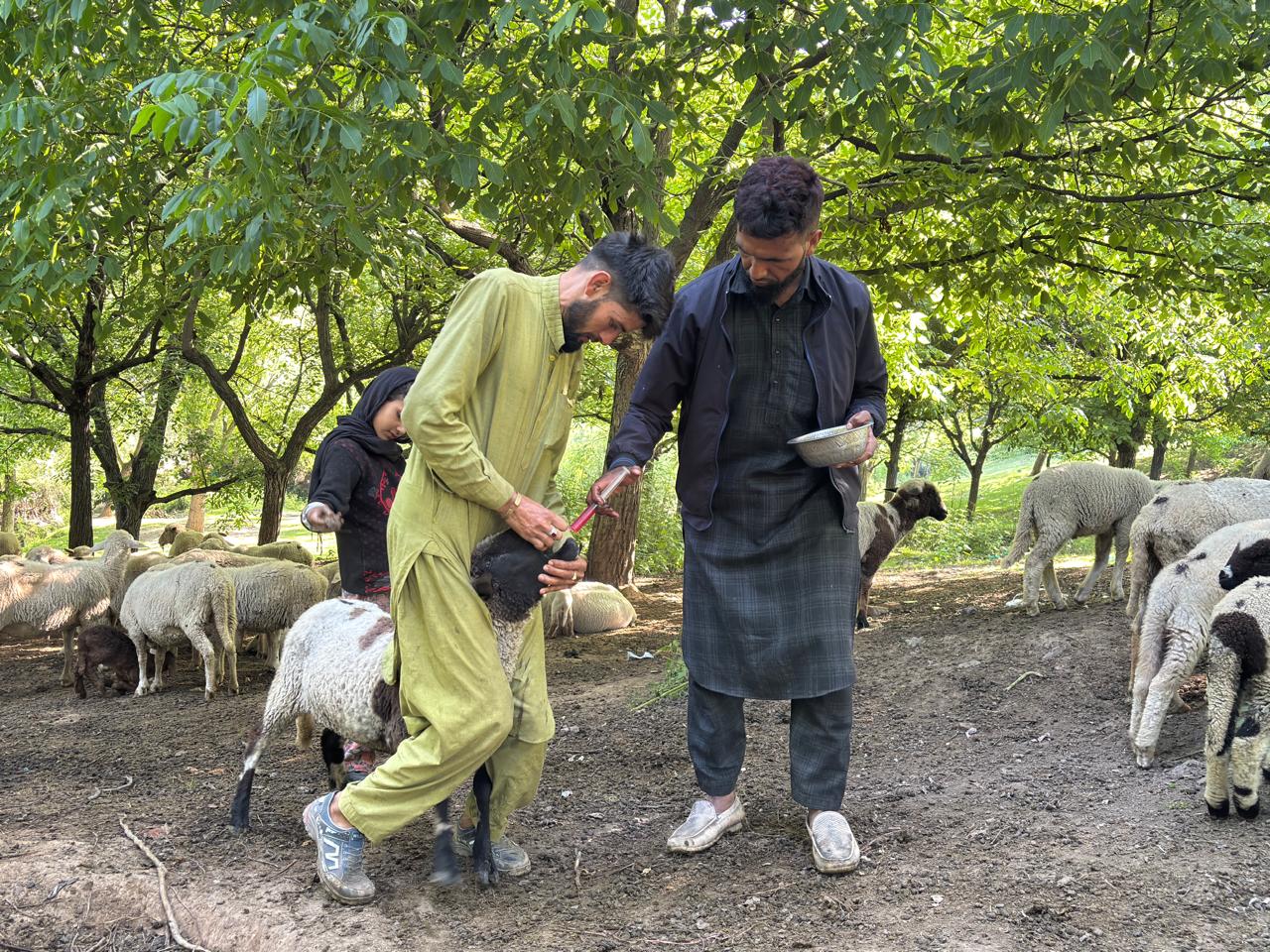 Altaf Ahmed Khan and his brother-in-law Mushtaq Ahmed feeding growth tonic to their sheep, whose development has stalled due to limited grazing.[/caption]
Altaf Ahmed Khan and his brother-in-law Mushtaq Ahmed feeding growth tonic to their sheep, whose development has stalled due to limited grazing.[/caption]
Altaf and his family, who too migrate to the high-altitude meadows of South Kashmir with their livestock (around 50 sheep, 20 goats, a few horses and two cows) have had to alter their plans this year. Instead of reaching their usual grazing pastures, they are currently staying near Khundru, a village located about 8 kilometers from Anantnag town.
The disruption, Altaf explained, came after the April 22 deadly Pahalgam attack that killed 26 tourists. “We usually start trekking to the mountains in the last week of April. But this year, the Army told us not to go ahead as the situation is not good,” he said.
According to him, security personnel advised them to remain in the lower plains temporarily - citing safety concerns.
Following the Pahalgam attack, tension gripped the region. Authorities advised people in the valley to stay away from high-altitude areas such as mountains. Trekking and adventure sports were temporarily suspended. Several tourist spots were shut down.
For the Bakarwals, the restrictions have not been easy as it came at a significant cost. Altaf explained that their seasonal migration is crucial for livestock. “We trek to the mountains because the grass there is abundant and of much better quality,” he said. In contrast, the plains offer limited and less nutritious forage.
He added that life in the mountains brings a sense of freedom. “There is no stress there. Here, we have to constantly watch over the stock to ensure they do not stray into someone’s orchard or field,” he said, describing their current situation as exhausting.
Altaf hopes they will soon be allowed to resume their journey uphill, where both the terrain and lifestyle suit them far better than the plains.
Guman Khan, 70, had returned from Jammu in early April, expecting to begin his annual trek to the highland meadows of South Kashmir’s Anantnag district by the last week of the month. However, those plans were halted when the local administration advised his group to remain in the plains until the situation normalised.
“We were supposed to start our trek on April 24 and would have reached the meadows by 26th. It usually takes us one to two full days,” he said. But following the advisory, they have now been stuck in the lowlands for over 20 days.
[caption id="attachment_452011" align="aligncenter" width="1280"]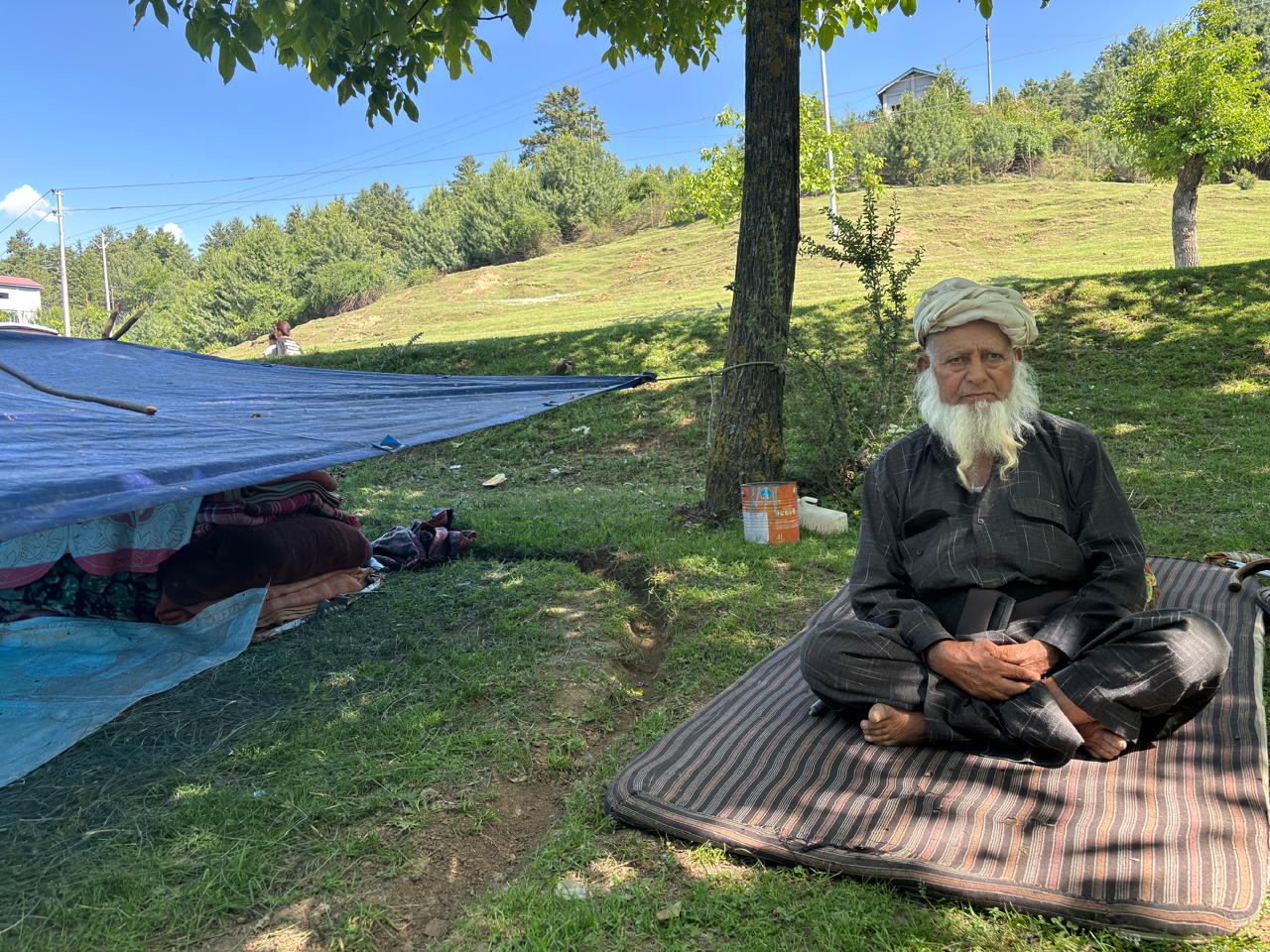 Guman Khan rests in the lowlands, anxiously waiting for the opportunity to resume the uphill trek.[/caption]
Guman Khan rests in the lowlands, anxiously waiting for the opportunity to resume the uphill trek.[/caption]
According to Guman, this delay is affecting their livestock. The early summer is typically the most crucial grazing period, when fresh grass boosts the health and growth of the livestock.
“Since we have not been able to go up, I have noticed that the sheep are not eating properly. They have not grown much and are actually becoming weaker with each passing day,” he said, adding that the longer the delay continues, the worse it gets for the herd’s condition.
A study titled 'Survival Strategies of Bakarwal Pastorals in Jammu & Kashmir' emphasises the significance of seasonal migration to high-altitude pastures for the Bakarwal community. It notes that these migrations are crucial for accessing lush meadows that are not available in the lower regions.
Dr. Gul Mohammad Rather, former deputy director of the Animal Husbandry Department and a practising veterinarian for over four decades, explained that grazing in high-altitude meadows is vital for the overall health, growth and productivity of livestock in Kashmir.
“These alpine pastures provide nutrient-rich forage and a cooler climate, which are excellent for livestock well-being,” he said and highlighted the age-old practice of transhumance, where herders - especially Bakarwals - move their livestock seasonally to these alpine regions.
With rising temperatures and increasing heat stress in the plains, Dr. Rather said it is more important than ever for Bakarwals to take their livestock to the meadows to ensure proper development and reduce stress-related health issues.
According to him, the livestock graze on a diverse range of grasses, legumes and herbs such as Alfalfa, Red Clover, Orchard Grass, Tall Fescue, Timothy Grass and Perennial Ryegrass. These forages are rich in essential nutrients - such as proteins, fiber, energy, vitamins and minerals - that support healthy growth, boost immunity, aid reproduction and enhance milk production in livestock and cattle.
[caption id="attachment_452009" align="aligncenter" width="1280"]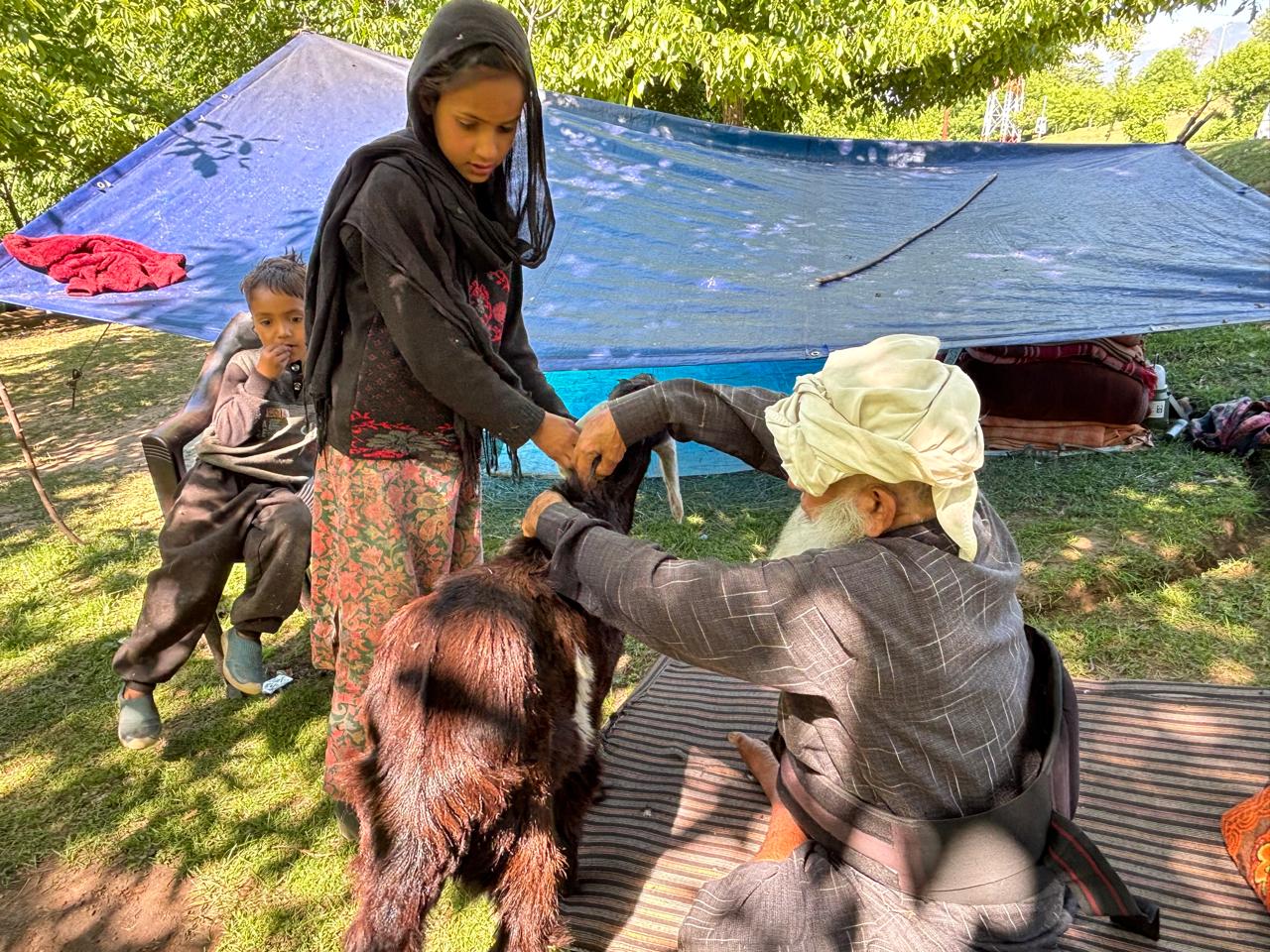 Guman Khan gives an injection to a goat that has grown weak and lethargic due to poor grazing conditions.[/caption]
Guman Khan gives an injection to a goat that has grown weak and lethargic due to poor grazing conditions.[/caption]
Altaf said that livestock growth has been badly affected in recent times. He pointed out that what is more worrying is the appearance of new health problems among the animals.
“The sheep are not just weak; some are unusually lazy, many have diarrhea and a few are even coughing,” he said. He believes this unusual pattern, especially among sheep, is likely due to warmer plains, poor water quality and low-quality grass.
Dr. Gul explains that when sheep are not taken to the cooler and cleaner alpine meadows, they can face several health problems. In the hot lowlands, they are more prone to stomach worms, causing weakness and weight loss. Wet and dirty conditions can lead to painful foot infections. The heat stresses them, making them more susceptible to cough, diarrhoea and other illnesses.
He added this may be due to the poor quality of grass, water and overall environment in the plains that also leads to weak bones and poor growth because of a lack of essential nutrients.
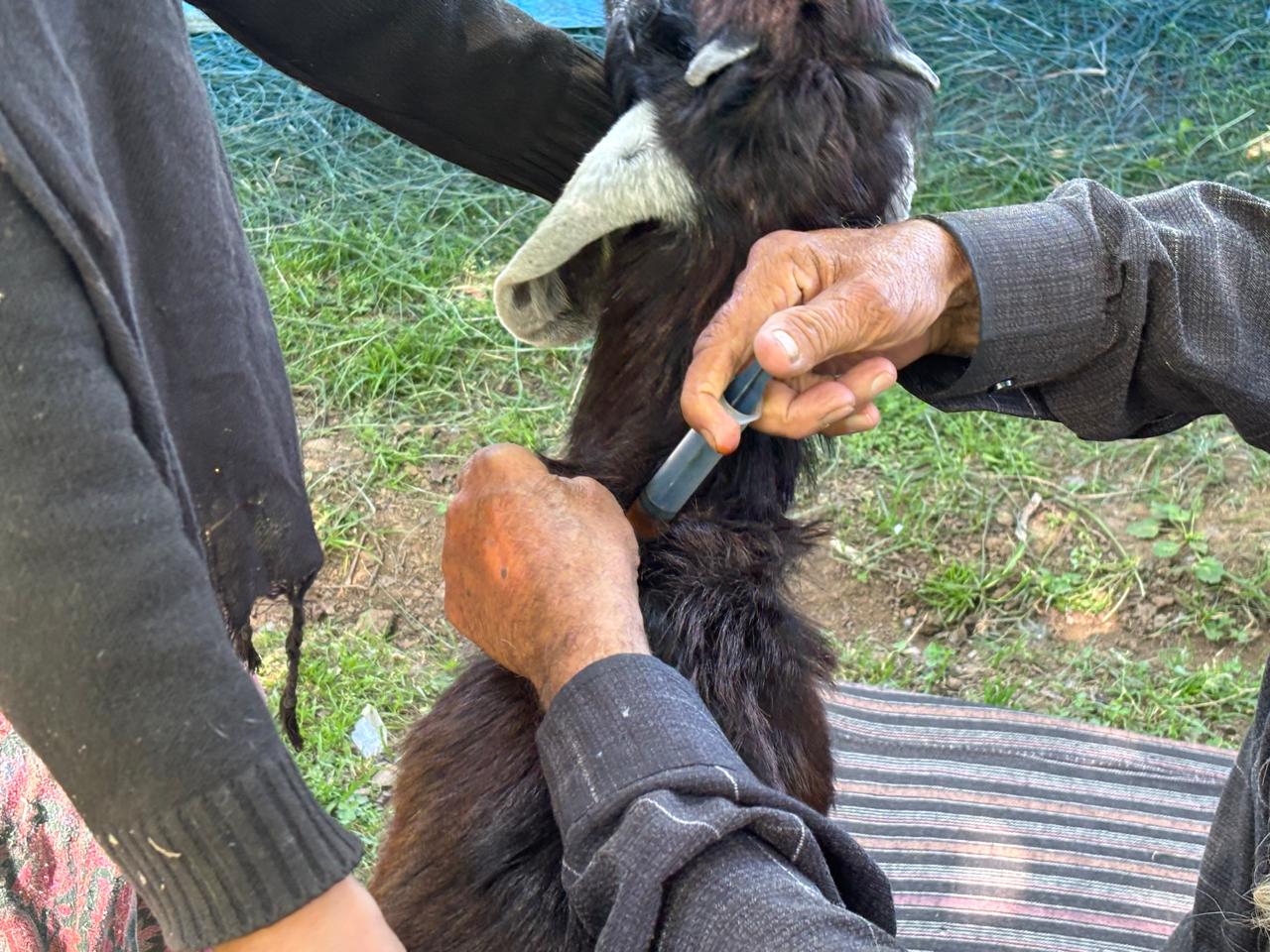
Bakarwals rely heavily on selling their sheep and goats during Eid for qurbani (animal sacrifice), as the income supports their expenses throughout the year, including buying essential goods and paying for livestock vaccines. However, this year, many Bakarwals are worried because their animals have not grown as expected that could lead to significant financial losses.
Manzoor Ahmed Khatana, currently stuck with his livestock in Bodoora village in Anantnag due to restrictions, shared his concerns. With Eid ul-Adha scheduled for June 7 and only a few weeks left, he fears his livestock will not gain enough weight to fetch a good price.
“I will lose a lot of money this year because my sheep and goats have not grown well. I expect to get Rs 3,000-4,000 less on each sheep than anticipated. Managing with such little money will be very difficult for me,” he said.
